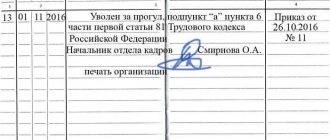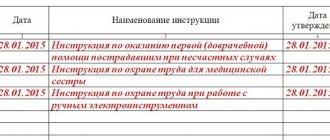Article 36. Conducting collective bargaining
Representatives of workers and employers participate in collective negotiations for the preparation, conclusion or amendment of a collective agreement, agreement and have the right to take the initiative to conduct such negotiations.
Representatives of a party who have received a proposal in writing to begin collective bargaining are required to enter into negotiations within seven calendar days from the date of receipt of the proposal by sending a response to the initiator of collective bargaining indicating representatives from their side to participate in the work of the collective bargaining commission and their powers. The start day of collective negotiations is the day following the day the initiator of collective negotiations receives the specified response.
Collective negotiations and the conclusion of collective agreements and agreements on behalf of employees by persons representing the interests of employers, as well as organizations or bodies created or financed by employers, executive authorities, local government bodies, and political parties are not allowed, except for the cases provided for by this Code.
back to contents
Commentary on Article 36 of the Labor Code of the Russian Federation
1. The commented article establishes general provisions for the conduct of collective negotiations on the preparation, conclusion or amendment of collective agreements and collective agreements.
Part 1 of the commented article establishes the subjects participating in collective bargaining for the preparation, conclusion or amendment of collective agreements and collective agreements, as well as their general rights. Collective negotiations in relation to the commented article and the Labor Code of the Russian Federation as a whole should be understood as an oral exchange of opinions, views, proposals of workers and employers on the preparation, conclusion or amendment of collective agreements and collective agreements. In accordance with part 1 of the commented article, representatives of workers and representatives of employers participate in collective negotiations (the concepts of representatives of workers and representatives of employers are disclosed in the comments to Article 29 and Article 33, the collective agreement and collective agreement - Article 40 and Article 45) .
Preparation of a collective agreement or collective agreement is a set of actions to develop a draft collective agreement or collective agreement, taking into account the comments and suggestions of representatives of employees and employers.
Conclusion of a collective agreement or collective agreement is the actions of representatives of employees and employers to sign a collective agreement or agreement and give it legal force.
Changing a collective agreement or agreement - introducing clarifying provisions into individual paragraphs of a collective agreement or agreement and (or) stating them or the entire collective agreement or collective agreement in a new edition.
The basic rights that are established in Part 1 of the commented article in relation to representatives of workers and employers are: - the right to participate in collective negotiations, that is, to express and send one’s comments and suggestions regarding the preparation, conclusion, amendment of collective agreements or collective agreements; - the right to put forward an initiative for collective bargaining - the legal opportunity to submit proposals for the preparation, conclusion, amendment of collective agreements or collective agreements and the justification for such a need.
2. Part 2 of the commented article regulates the issues regarding the beginning of collective bargaining. To do this, representatives of one of the parties (that is, either employees or employers) send written proposals to the other party to initiate collective bargaining. Such a proposal can be drawn up in any form on an A4 sheet, which will contain an indication of the need to conduct collective negotiations in order to prepare, conclude or amend a collective agreement or agreement.
At the same time, part 2 of the commented article in relation to representatives from the other side who received such a written proposal establishes the obligation to enter into negotiations to achieve the above goals. We believe that establishing the obligation to enter into such negotiations is not legal, despite the fact that the goal of the federal legislator is to prevent evasion from participation and ensuring the preparation, conclusion or amendment of a collective agreement, agreement, since collective agreements and agreements are legal acts, which also regulate the relationship between employee and employer. At the same time Art. 21 and Art. 22 of the Labor Code of the Russian Federation with commentaries establishes the right of employers and employees to conduct collective negotiations and conclude collective agreements and agreements, and not an obligation. In addition, Art. 9 of the Labor Code of the Russian Federation provides that the regulation of labor relations and other relations directly related to them can be carried out by concluding, amending, or supplementing collective agreements, agreements, and employment contracts by employees and employers (see commentary to Article 9). Thus, the Labor Code of the Russian Federation does not provide for the obligation to conduct collective bargaining and the conclusion of collective contracts and agreements, therefore, the establishment of the obligation to enter into collective bargaining contradicts other provisions of the Labor Code of the Russian Federation.
For representatives from the party who have received a written proposal to begin collective negotiations to enter into collective negotiations, Part 2 of the commented article establishes a period of seven calendar days. Thus, the deadlines for entering into such collective bargaining include both working days and calendar days.
At the same time, part 2 of the commented article determines the method of such entry into collective bargaining - the direction of the response, which must indicate representatives from the party that received the above proposal to participate in the work of the collective bargaining commission, and their powers must also be indicated . Thus, the response sent by the party receiving the proposal to initiate collective bargaining is sent in writing, indicating the necessary information. In our opinion, the provision of part 2 of the commented article that the sending of a response constitutes entry into collective bargaining is not correct, since, in essence, the sending of such a response is confirmation or consent to enter into collective bargaining, therefore, from this point of view and taking into account the provisions of Part 2 of the commented article as a whole, it would be correct to indicate that representatives of the party that received a written proposal to begin collective bargaining agree to enter into collective bargaining by sending a written response indicating representatives from the party that received the above proposal, for participation in the work of the collective bargaining commission, as well as their powers.
Part 2 of the commented article also defines the moment of the beginning of collective bargaining - this is the day following the day one of the parties (employer or employee) received a written response to a written proposal to begin collective bargaining. This formulation also corresponds to Article 191 of the Civil Code of the Russian Federation, which determines the moment when the period begins - the next day after the day or event that determines its beginning. Thus, in general, the period for agreeing on the commencement of collective bargaining may take up to eight calendar days.
3. Part 3 of the commented article actually enshrines the principle of inadmissibility of improper representation in collective bargaining, as well as the principle of inadmissibility of interference in the process of collective bargaining by state authorities, local governments, and political parties. These principles are manifested in the establishment of a ban on the representation of the interests of employees during collective bargaining, the conclusion of collective contracts and agreements: - by persons representing the interests of employers, which may include the actual representatives of employers, as well as persons specially authorized to conduct collective negotiations; - organizations or bodies created or financed by employers. Any type of legal entity can be classified as an organization if the employer of those employees who participate in collective bargaining and concluding collective agreements is their founder, or participates in the formation of the authorized (share) capital and property of such legal entities. Bodies created or financed by employers can be any management bodies, including those in an organization that is an employer; - executive authorities - bodies that exercise the functions of executive authority. In particular, such bodies include the highest official of a constituent entity of the Russian Federation, the highest executive body of state power of a constituent entity of the Russian Federation, and other executive authorities. Let us draw attention to the fact that Part 3 of the commented article, establishing such a prohibition, is “limited” only to indicating the executive authorities, although there are bodies of two other branches of government (legislative and judicial), therefore from this point of view it would be more correct to indicate - government departments; - local government bodies - in accordance with Art. 2 of the Federal Law of October 6, 2003 N 131-FZ “On the General Principles of the Organization of Local Self-Government in the Russian Federation” these are bodies elected directly by the population and (or) formed by the representative body of the municipality, vested with their own powers to resolve issues of local importance; - political parties - according to Art. 3 of the Federal Law of July 11, 2001 N 95-FZ “On Political Parties” they are public associations created for the purpose of participation of citizens of the Russian Federation in the political life of society through the formation and expression of their political will, participation in public and political events, in elections and referendums, as well as for the purpose of representing the interests of citizens in government bodies and local governments.
At the same time, Part 3 of the commented article provides that exceptions may be established from the above rule on the inadmissibility of such representation by the Labor Code of the Russian Federation.
Article 37. Procedure for conducting collective bargaining
Representatives of the parties participating in collective negotiations are free to choose issues related to the regulation of social and labor relations.
Two or more primary trade union organizations, collectively uniting more than half of the employees of a given employer, by decision of their elected bodies, can create a single representative body for conducting collective bargaining, developing a single draft collective agreement and concluding a collective agreement (hereinafter referred to as the single representative body). The formation of a single representative body is carried out on the basis of the principle of proportional representation depending on the number of trade union members. At the same time, it must include a representative of each of the primary trade union organizations that have created a single representative body. The single representative body has the right to send to the employer (his representative) a proposal to begin collective negotiations on the preparation, conclusion or amendment of a collective agreement on behalf of all employees.
A primary trade union organization that unites more than half of the organization’s employees, an individual entrepreneur, has the right, by decision of its elected body, to send to the employer (his representative) a proposal to begin collective bargaining on behalf of all employees without first creating a single representative body.
If none of the primary trade union organizations or collectively the primary trade union organizations that wish to create a single representative body unite more than half of the employees of a given employer, then the general meeting (conference) of workers by secret ballot may determine the primary trade union organization that, with the consent of its elected body, is instructed to send the employer (his representative) a proposal to begin collective bargaining on behalf of all employees. In cases where such a primary trade union organization has not been determined or the employees of a given employer are not united in any primary trade union organizations, the general meeting (conference) of workers by secret ballot may elect another representative (representative body) from among the employees and vest him with the appropriate powers.
The primary trade union organization, a single representative body or other representative (representative body) of workers, vested with the right to take the initiative to conduct collective negotiations in accordance with parts two to four of this article, are obliged, simultaneously with sending the employer (his representative) a proposal about the start of these collective negotiations inform all other primary trade union organizations that unite employees of this employer, and within the next five working days create, with their consent, a single representative body or include their representatives in the existing single representative body. If within the specified period these primary trade union organizations do not inform about their decision or refuse to send their representatives to the single representative body, then collective negotiations begin without their participation. At the same time, primary trade union organizations that do not participate in collective negotiations retain the right to send their representatives to a single representative body within one month from the date of the start of collective negotiations. In the case where the representative of workers in collective bargaining is a single representative body, the members of this body represent the side of the workers in the collective bargaining commission.
The right to conduct collective bargaining, sign agreements on behalf of workers at the level of the Russian Federation, one or more constituent entities of the Russian Federation, industry, territory is granted to the relevant trade unions (trade union associations). If there are several trade unions (associations of trade unions) at the appropriate level, each of them is given the right to representation in a single representative body for collective bargaining, formed taking into account the number of trade union members they represent. In the absence of an agreement on the creation of a single representative body for conducting collective negotiations, the right to conduct them is granted to the trade union (association of trade unions) that unites the largest number of members of the trade union (trade unions).
The parties must provide each other no later than two weeks from the date of receipt of the relevant request with the information they have necessary for conducting collective bargaining.
Participants in collective bargaining and other persons associated with collective bargaining must not disclose information received if this information relates to a secret protected by law (state, official, commercial or other). Persons who disclosed the specified information are brought to disciplinary, administrative, civil, and criminal liability in the manner established by this Code and other federal laws.
The timing, place and procedure for holding collective negotiations are determined by representatives of the parties who are participants in these negotiations.
back to contents
Labor Code of the Russian Federation (LC RF)
Labor Code of the Russian Federation\
Pages:
6
| Table of contents
Article 36. Conducting collective bargaining
Representatives of workers and employers participate in collective negotiations for the preparation, conclusion or amendment of a collective agreement, agreement and have the right to take the initiative to conduct such negotiations.
(as amended by Federal Law No. 90-FZ of June 30, 2006)
(see text in the previous edition)
Representatives of a party who have received a proposal in writing to begin collective bargaining are required to enter into negotiations within seven calendar days from the date of receipt of the proposal by sending a response to the initiator of collective bargaining indicating representatives from their side to participate in the work of the collective bargaining commission and their powers. The start day of collective negotiations is the day following the day the initiator of collective negotiations receives the specified response.
(Part two as amended by Federal Law No. 90-FZ of June 30, 2006)
(see text in the previous edition)
Collective negotiations and the conclusion of collective agreements and agreements on behalf of employees by persons representing the interests of employers, as well as organizations or bodies created or financed by employers, executive authorities, local government bodies, and political parties are not allowed, except for the cases provided for by this Code.
(Part three introduced by Federal Law No. 90-FZ of June 30, 2006)
Article 37. Procedure for conducting collective bargaining
Representatives of the parties participating in collective negotiations are free to choose issues related to the regulation of social and labor relations.
(as amended by Federal Law No. 90-FZ of June 30, 2006)
(see text in the previous edition)
Two or more primary trade union organizations, collectively uniting more than half of the employees of a given employer, by decision of their elected bodies, can create a single representative body for conducting collective bargaining, developing a single draft collective agreement and concluding a collective agreement (hereinafter referred to as the single representative body). The formation of a single representative body is carried out on the basis of the principle of proportional representation depending on the number of trade union members. At the same time, it must include a representative of each of the primary trade union organizations that have created a single representative body. The single representative body has the right to send to the employer (his representative) a proposal to begin collective negotiations on the preparation, conclusion or amendment of a collective agreement on behalf of all employees.
(Part two as amended by Federal Law No. 90-FZ of June 30, 2006)
(see text in the previous edition)
A primary trade union organization that unites more than half of the organization’s employees, an individual entrepreneur, has the right, by decision of its elected body, to send to the employer (his representative) a proposal to begin collective bargaining on behalf of all employees without first creating a single representative body.
(Part three as amended by Federal Law No. 90-FZ of June 30, 2006)
(see text in the previous edition)
If none of the primary trade union organizations or collectively the primary trade union organizations that wish to create a single representative body unite more than half of the employees of a given employer, then the general meeting (conference) of workers by secret ballot may determine the primary trade union organization that, with the consent of its elected body, is instructed to send the employer (his representative) a proposal to begin collective bargaining on behalf of all employees. In cases where such a primary trade union organization has not been determined or the employees of a given employer are not united in any primary trade union organizations, the general meeting (conference) of workers by secret ballot may elect another representative (representative body) from among the employees and vest him with the appropriate powers.
(Part four as amended by Federal Law No. 90-FZ of June 30, 2006)
(see text in the previous edition)
The primary trade union organization, a single representative body or other representative (representative body) of workers, vested with the right to take the initiative to conduct collective negotiations in accordance with parts two to four of this article, are obliged, simultaneously with sending the employer (his representative) a proposal about the start of these collective negotiations inform all other primary trade union organizations that unite employees of this employer, and within the next five working days create, with their consent, a single representative body or include their representatives in the existing single representative body. If within the specified period these primary trade union organizations do not inform about their decision or refuse to send their representatives to the single representative body, then collective negotiations begin without their participation. At the same time, primary trade union organizations that do not participate in collective negotiations retain the right to send their representatives to a single representative body within one month from the date of the start of collective negotiations. In the case where the representative of workers in collective bargaining is a single representative body, the members of this body represent the side of the workers in the collective bargaining commission.
(part five as amended by Federal Law dated June 30, 2006 N 90-FZ)
(see text in the previous edition)
The right to conduct collective bargaining, sign agreements on behalf of workers at the level of the Russian Federation, one or more constituent entities of the Russian Federation, industry, territory is granted to the relevant trade unions (trade union associations). If there are several trade unions (associations of trade unions) at the appropriate level, each of them is given the right to representation in a single representative body for collective bargaining, formed taking into account the number of trade union members they represent. In the absence of an agreement on the creation of a single representative body for conducting collective negotiations, the right to conduct them is granted to the trade union (association of trade unions) that unites the largest number of members of the trade union (trade unions).
(as amended by Federal Law No. 90-FZ of June 30, 2006)
(see text in the previous edition)
The parties must provide each other no later than two weeks from the date of receipt of the relevant request with the information they have necessary for conducting collective bargaining.
Participants in collective bargaining and other persons associated with collective bargaining must not disclose information received if this information relates to a secret protected by law (state, official, commercial or other). Persons who disclosed the specified information are brought to disciplinary, administrative, civil, and criminal liability in the manner established by this Code and other federal laws.
(as amended by Federal Law No. 90-FZ of June 30, 2006)
(see text in the previous edition)
The timing, place and procedure for holding collective negotiations are determined by representatives of the parties who are participants in these negotiations.
Article 38. Settlement of disagreements
If during collective negotiations no agreed decision is made on all or individual issues, then a protocol of disagreements is drawn up. The settlement of disagreements that arose during collective negotiations on the conclusion or amendment of a collective agreement or agreement is carried out in the manner established by this Code.
Article 39. Guarantees and compensation for persons participating in collective bargaining
Persons participating in collective negotiations, preparation of a draft collective agreement, are released from their main work while maintaining their average earnings for a period determined by agreement of the parties, but not more than three months.
All costs associated with participation in collective negotiations are compensated in the manner established by labor legislation and other regulatory legal acts containing labor law standards, a collective agreement, and an agreement. Payment for the services of experts, specialists and intermediaries is made by the inviting party, unless otherwise provided by the collective agreement or agreement.
(as amended by Federal Law No. 90-FZ of June 30, 2006)
(see text in the previous edition)
Representatives of workers participating in collective negotiations, during the period of their conduct, cannot, without the prior consent of the body that authorized them for representation, be subject to disciplinary action, transferred to another job or dismissed at the initiative of the employer, with the exception of cases of termination of the employment contract for committing an offense, for which, in accordance with this Code and other federal laws, provides for dismissal from work.
Pages:
6
| Table of contents
Article 39. Guarantees and compensation for persons participating in collective bargaining
Persons participating in collective negotiations, preparation of a draft collective agreement, are released from their main work while maintaining their average earnings for a period determined by agreement of the parties, but not more than three months.
All costs associated with participation in collective negotiations are compensated in the manner established by labor legislation and other regulatory legal acts containing labor law standards, a collective agreement, and an agreement. Payment for the services of experts, specialists and intermediaries is made by the inviting party, unless otherwise provided by the collective agreement or agreement.
Representatives of workers participating in collective negotiations, during the period of their conduct, cannot, without the prior consent of the body that authorized them for representation, be subject to disciplinary action, transferred to another job or dismissed at the initiative of the employer, with the exception of cases of termination of the employment contract for committing an offense, for which, in accordance with this Code and other federal laws, provides for dismissal from work.
back to contents






